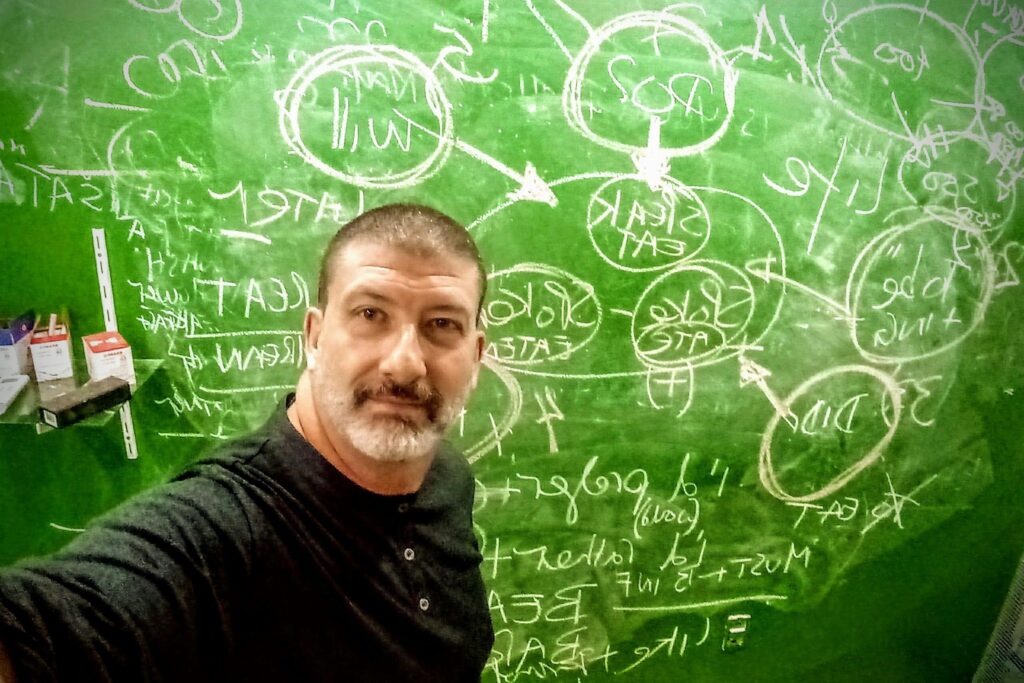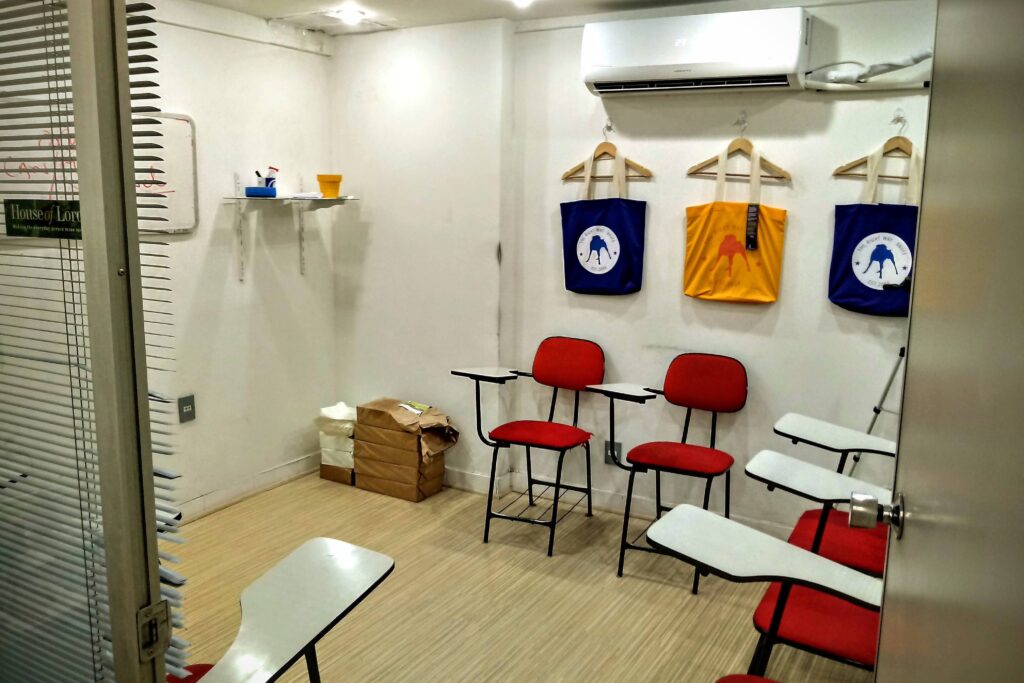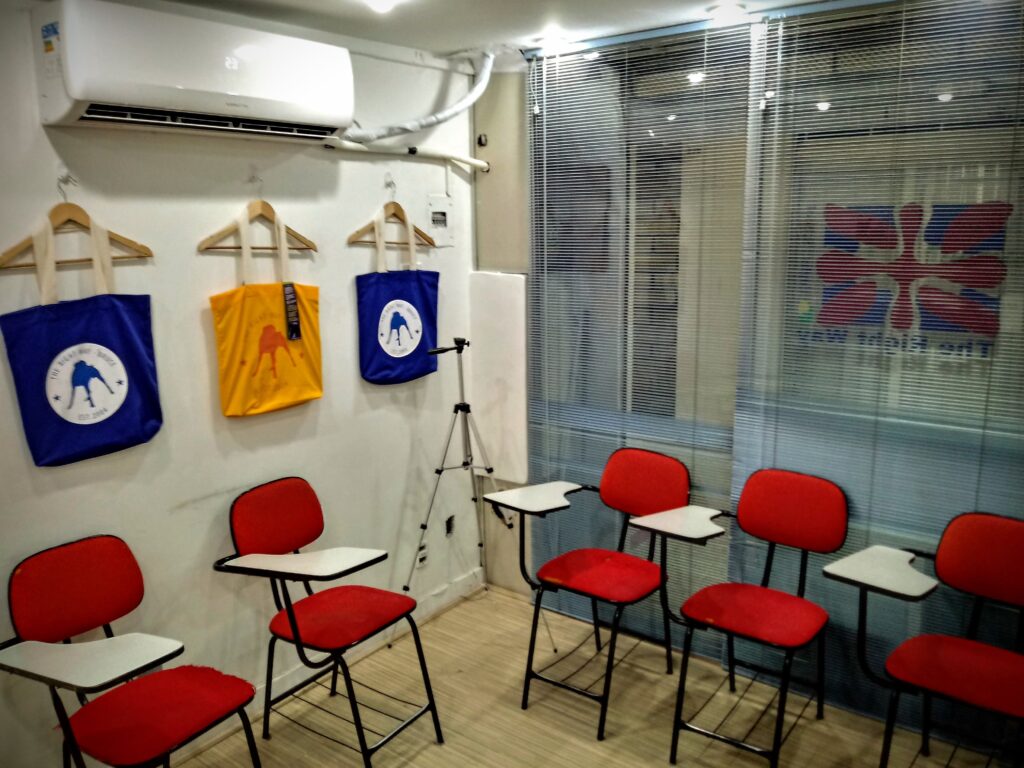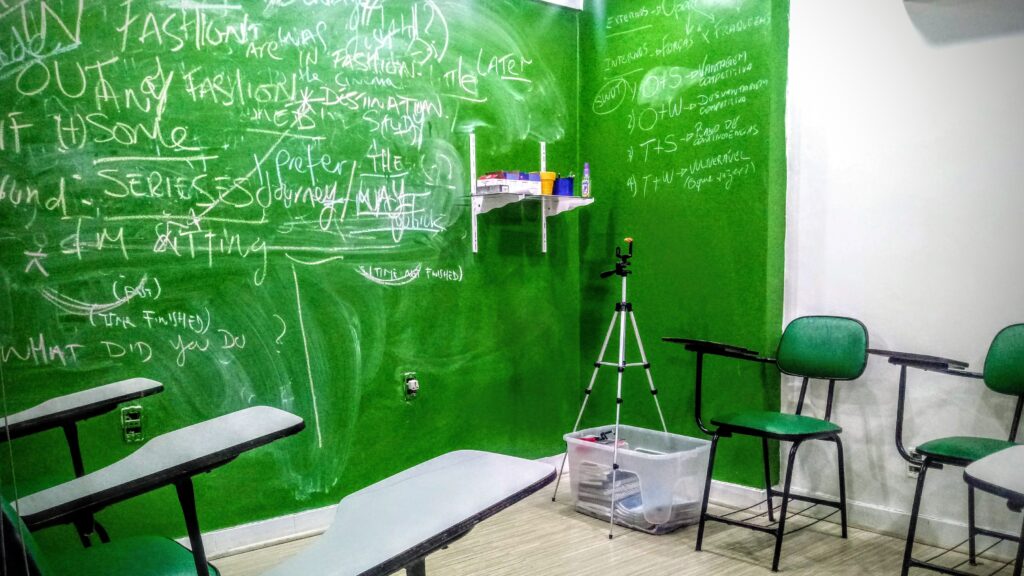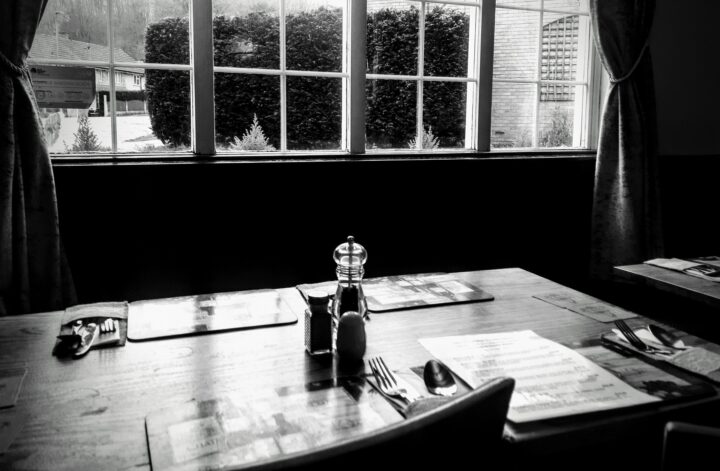Rio de Janeiro: 30°C, hot, sunny and a little overcast.
It is likely to be a quiet day since yesterday was a bank holiday; many people will not be working today, even though it is not officially a holiday.
It’s a countdown until I go to England, there are only 19 days until my flight. I don’t know if I am anxious or happy or if it’s just normal. Before I had the school, I travelled a lot, both within Brazil and abroad.
When I started the school, I became a slave to the business. Maintaining the school was Very hard, especially in a country like Brazil, where it is so difficult to run a business when the government is always against you. Therefore, whilst I had the school, travelling was almost impossible, so I only travelled very little.
The last time I went to England, I was setting up the school to open after returning from England. I had finalised the necessary contracts for the premises, and when I came back, the school’s outfitting would be completed and ready to open within two months; that was 22 years ago, at the beginning.
I then only closed the school in the middle of the pandemic; I literally couldn’t travel for 22 years due to the school or lack of competence. People still approach me in the street or send me messages asking whether I might reopen the school. I tell myself, never again.
Don’t get me wrong; I love the school. It was my second home, my harbour, and sometimes my retreat. When it closed, a part of me closed or died and ceased to exist too.
I have many good memories that I will always cherish, but it wasn’t easy. The truth is that it was extremely difficult to keep the school up and running.
It was difficult for many reasons, chiefly external ones. Brazil’s political and economic climate has never allowed businesses to flourish and grow. Given the current economic conditions, having a business in Brazil is not good, to say the least. This situation is not just about schools; it also affects thousands of other companies; it is always a battle to keep a business running in Brazil.
I also believe Rio de Janeiro is probably the worst city in Brazil for conducting business. Politically, economically, and socially, Rio and its carioca culture and Carioca’s have been in decline since it ceased to be the capital of Brazil in 1964 when the capital was moved to Brasília, located inland and in the middle of nowhere.
If Rio is the worst city for doing business, then consequently, Copacabana is the worst neighbourhood in Rio for conducting business as well. Again, this is just from my perspective as the ex-owner of a language school. In other neighbourhoods or areas, trade might have been better.
The school was located in Copacabana’s commercial centre, specifically a gallery that was supposedly the first of its kind in Copacabana and Rio de Janeiro.
Approximately 80 years ago, it served as a reference point and was seen as Rio’s first shopping centre and trade gallery. The impressive 12-floor building is situated on the main shopping street in Copacabana, Avenida Nossa Senhora de Copacabana, and strategically in the heart of the neighbourhood; this central nucleus is undoubtedly the most dynamic part of Copacabana.
The number of people passing along the main shopping street where the gallery is quite impressive. My mother, who has visited Brazil several times, is afraid of going to Copacabana because of the sheer volume of people on the street at any one time. It is always too much for her to take in all at once.
The absolute truth is that Copacabana is not a neighbourhood but should really be seen as a town with a population of nearly 200,000 people who live and breathe there 24/7; Copacabana never stops. It also has one of the most famous beaches in the world: Copacabana Beach. For a long time, it has been regarded as the most beautiful urban beach globally. Whether it still holds that title until today, I do not know, but it remains incredibly beautiful and unique.
Yet, with the number of people who live, work, and visit Copacabana, the commercial centre where my school was located only received a fraction of the movement from the street. Although there was a plethora—a tsunami—of people passing by the building every day, only a trickle of individuals entered the commercial gallery.
The school survived for 20 years and could have lasted longer if I had chosen to continue with it after the pandemic.
Economically, it was not a success as it never expanded into other branches in other neighbourhoods. Unfortunately, or fortunately, for 20 years, it remained just that one unit in the gallery in Copacabana.
I think this history is also due to my competence, or rather, my incompetence, so to speak, and my personal life, which has always been an economic drain—a burden. At least I managed to run the business for 20 years; some don’t last even one or five years.
As a small businessman in a challenging and sometimes hostile foreign country like Brazil, it still has supported me and my family for 20 years, albeit more indirectly than directly. Because of that, it could be seen as a success.
Success can be measured in many ways; economic factors do not solely define it. The traditional understanding of success has always been understood as a financial pretext; in contrast, a more contemporary definition emphasises happiness, the freedom to go and do whatever you want, or the pursuit of one’s true vocation without any form of limitation.
I’m uncertain if I experienced success during that time. The school was a very special place for me, Yasmin, and many of my students. Even Jessica, when she was very young, studied at my school. So, looking back at it from another perspective, perhaps it was a success after all.
Today, I opened a new bank account. Now, I have three cards to travel with to England.
In bed by 11 pm.
Thank you.
Thanks for reading this blog post. Please explore my other posts and share your thoughts in the comments section.
Richard


